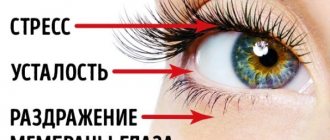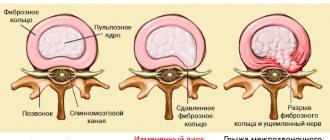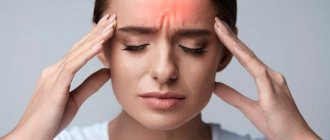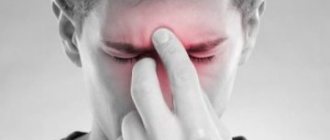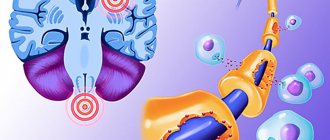During the period of night rest, people rarely sleep in one position. They move their legs and arms, roll over from side to side, jerk their limbs, or generally shudder. Often they don't even notice it.
What causes muscle spasms? Is this a physiological need or the cause of a possible disease? This feature is called by scientists as hypnagogic twitching or nocturnal myoclonus.
In 70% of the population this is a physiological feature. Most often occurs at the initial stage of sleep. It has no symptoms, goes away on its own and, only in isolated cases, is pathological.
Norms of twitching in a person's sleep
Most of humanity has encountered myoclonus, calling it twitching. This is a feature of the physiological state.
Occurs when frightened or during the first stage of sleep. Usually one-time and goes away immediately.
Muscle contractions also occur after physical training. In children - during intensive growth. Even hiccups are classified as physiological myoclonus.
You should not worry if these contractions are isolated, pass quickly and do not cause physical discomfort.
But, if symptoms tend to become more frequent and intensified, interfere with rest and are observed while awake, you should be wary and seek help from a specialist.
Who is most likely to experience myoclonus?
A baby twitches in his sleep as much as an adult or elderly person. Moreover, twitching occurs more often in the initial stages of falling asleep. This leads to the conclusion that the problem is equally diffusion for all age categories.
When to see a doctor?
If the startle in the initial phase of sleep is not constant, has a clear connection with emotional experiences, nervous overload, and does not lead to insomnia and disability, then you can try to cope with it yourself. The main thing here is maintaining well-being and the possibility of proper rest.
If there are frequent, repeated muscle twitches that prevent you from falling asleep, it is necessary to record in your memory the accompanying symptoms (sweating, tachycardia, a feeling of “failure”).
Insomnia has a serious impact on health and provokes any problems and latent course of diseases (hypertension, disruption of the functions of the digestive organs).
Severe nocturnal myoclonus cannot be tolerated for a long time. Perhaps the sign is one of the symptoms of the disease. Contacting a neurologist will help with timely diagnosis and targeted treatment. In regional centers it is worth looking for departments for the treatment of sleep disorders. Sleep doctors will conduct studies of brain activity and prescribe optimal therapy.
Factors influencing twitching when falling asleep
There are several main factors that can affect the intensity of nighttime shuddering:
- psycho-emotional situation at work, scandals at home, increased suspiciousness, depression lead to mental disorders. They are one of the main factors of a restless stay. They can cause neuralgic syndrome and lead to pathology;
- physical overstrain of the body during the working day. Excessive intake of lactic acid into the muscles causes tone and involuntarily contracts them;
- The process can also be influenced by external stimuli, such as the light of street lamps, noisy neighbors, extraneous noise from the street. These factors negatively affect the sensory systems, disrupting not only sleep, but also mood;
- Experts say that the position at the time of rest is very important. Blood flow should not be disturbed, muscles should be in a relaxed state, internal organs should not be pinched;
- An important factor is the excessive intensity of the brain during the daytime. This problem is associated with people whose work involves brain activity. And also creative people;
- excessive consumption of alcohol, energy drinks and caffeine will contribute to restless rest;
- The computer and computer games excite the brain, which can provoke nighttime impulses.
Unpleasant sensations that prevent you from falling asleep
The feeling of shuddering when falling asleep is familiar to many adults. Some pay little attention and continue to sleep peacefully; for others, drowsiness suddenly disappears due to simultaneous unpleasant symptoms:
- heartbeat;
- severe fear;
- feelings of “falling”, “failure”, “death”;
- pain in the muscles of the limbs, in the head;
- increased sweating, heat;
- sudden shortness of breath;
- hiccups.
Judging by the reviews on forums, people experience fear, are forced to suddenly wake up every night, get up and walk around the house in order to calm down. Somnologists who study sleep phases confirm the listed signs with objective studies of volunteers.
The phenomenon is given a name in medical language “nocturnal myoclonus”.
The frequency of repetitions of instantaneous attacks varies: from single to several with a new attempt to doze off. If a person works the night shift, the condition occurs during daytime sleep.
Causes
Most doctors do not consider nocturnal myoclonus a pathology. They attribute it to a natural function of the nervous system.
- Before going to bed, the muscles relax sharply, and the body perceives this situation as a dying process. A signal is sent to the hypothalamus. The muscles begin to contract rapidly to awaken the body and renew vitality;
- in a state of sleep, vital processes are dulled, but the brain continues to work intensively and control the situation. It sends pulses to make sure everything is working properly. These minor tremors are unnoticeable. They do not bother you and are purely physiological;
- trembling may also indicate a lack of minerals and trace elements in the body - glucose, sodium, potassium;
- rapid growth in children can cause the syndrome. But there is no reason to worry. This goes away naturally as the baby grows up;
- for people who suffer from severe snoring, a sharp start may indicate that breathing has stopped;
- taking medications or abruptly stopping them can cause limb spasms and convulsions;
- The syndrome can appear in people who have suffered traumatic brain injuries or concussions.
Sometimes a similar phenomenon can occur as a consequence of viral diseases.
In what cases is specialist help needed?
In 70% of the population, myoclonus is a physiological feature. But there are also pathological features that require the help of a specialist.
For example, when a person twitches even while awake and an increase and worsening of seizures occurs.
Trembling and twitching can cause a number of diseases:
- epilepsy;
- diabetes;
- pinched nerves;
- gout;
- muscle dystrophy;
- metabolic disorder;
- avitaminosis.
If myoclonus does not disappear for a long time, interferes with healthy sleep and contractions intensify, it is better to see a specialist and identify the cause.
Timely diagnosis will help prevent a number of hidden diseases.
Are flinches dangerous?
It all depends on the reason that causes spasms. If such phenomena rarely bother you, then there is no reason to sound the alarm.
If frequent shuddering interferes with sleep, then this may be a symptom of a disease - it is better to consult a specialist
Thus, muscle spasms can be caused by severe neurosis, impaired blood circulation, and the development of epilepsy.
Doctors recommend leading a healthy lifestyle, going to bed on time, avoiding physical activity and eating a few hours before bedtime. Sometimes the cause of muscle spasms can even be an unsuitable pillow and mattress. Try to create a comfortable sleeping environment: complete silence and darkness, a feeling of relaxation and peace.
Treatment
It is worth noting that all medications must be taken after diagnosis and identification of the origin of involuntary muscle contractions.
Drug treatment is prescribed only by the attending physician, since there can be many causes of the syndrome.
Anticonvulsants from the Anticonvulsants group occupy the main place in the fight against spasms.
Among the medicines, antiepileptic drugs have proven themselves:
- Barbiturate;
- Clonazepam;
- Volproate;
- Benzodiazapine;
- bioactive supplement L-tryptophan;
- Tryptophan.
How to help a person get rid of myoclonus
If night trembling often bothers you and prevents you from getting quality rest, you need to follow a few simple rules:
- create and follow a daily routine. Determine the hours at which you need to go to bed and what time you need to wake up;
- You should not exercise intensely in the evening. If you wish, you can do a series of light relaxation exercises. But move exercises in the gym or fitness to the morning or afternoon;
- improve the microclimate in the bedroom and prepare a sleeping place, nothing should bother you, the bed should be comfortable and spacious;
- It is advisable to sleep in complete darkness without extraneous stimuli and noise. If this is not possible, there is an option to purchase a sleep mask and earplugs;
- Don't overeat at night. Eating fatty, high-calorie foods has a negative impact on your well-being. Fast carbohydrates are also not suitable, they immediately saturate the body with energy and provoke action;
- You should avoid drinking coffee drinks before your evening rest;
- Do not take energy drinks or alcohol at night;
- try to avoid stressful situations in the evening. If you have been too stressed during the day and cannot calm down even at night, try breathing exercises or meditation;
- give up computer entertainment before bed. They excite the nervous system and prevent sound, restful sleep.
Helpful tips on how to sleep peacefully
Healthy and restful sleep, unfortunately, is not available to every modern person - according to statistics, about half of the world's population has some kind of problem with falling asleep and quality rest at night.
However, if you listen to the tips below, you can significantly improve your overall sleep quality and feel great in the morning.
- Counting time . Healthy sleep is 8 full hours of night rest. Try to distribute your time rationally, do not sit at the computer until late at night, leave unfinished tasks for the morning;
- Normalize your circadian rhythms . It is advisable to go to bed and get up at the same time. The optimal time to go to bed is no later than 10 pm. If you cannot fall asleep by this time, then it is better to skip daytime naps, but get a good night's sleep;
- Moderation in everything . During the waking period, try not to overload yourself physically and emotionally, take regular breaks;
- Adjust your diet . Eating at night is very harmful to the stomach and sleep. At least 3 hours before the night's rest, do not eat food, give up too fatty, fried and unhealthy foods, replacing them with vegetables, fruits and juices. Eat small meals, at least 5 times a day. Forget about coffee and black tea before bed;
- Relax . A set of relaxation activities before bed at home includes a light walk for no more than 30 minutes, a comfortable warm shower or bath with aromatherapy, massage, and good sex;
- The best microclimate and bed . Choose a reliable, comfortable bed with an orthopedic mattress and pillow, a comfortable blanket and bed linen made from natural materials. Maintain the temperature in the bedroom at about 18 degrees, ventilate it regularly and humidify the air in the room.
